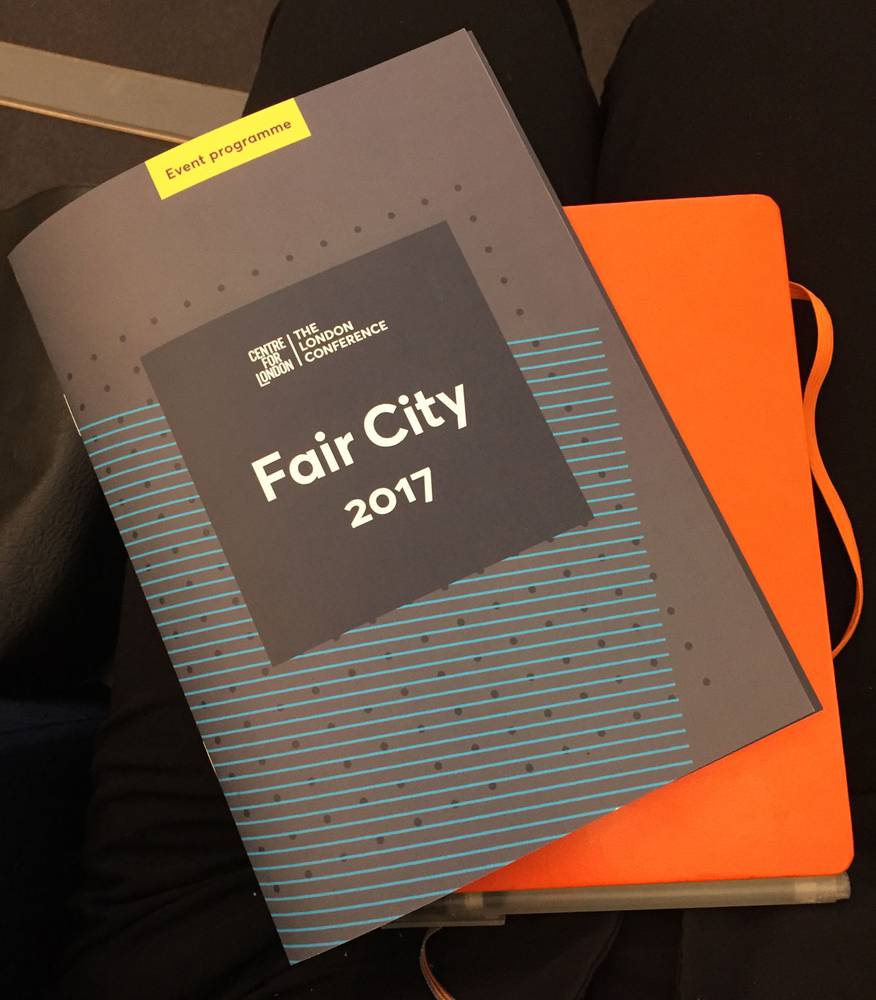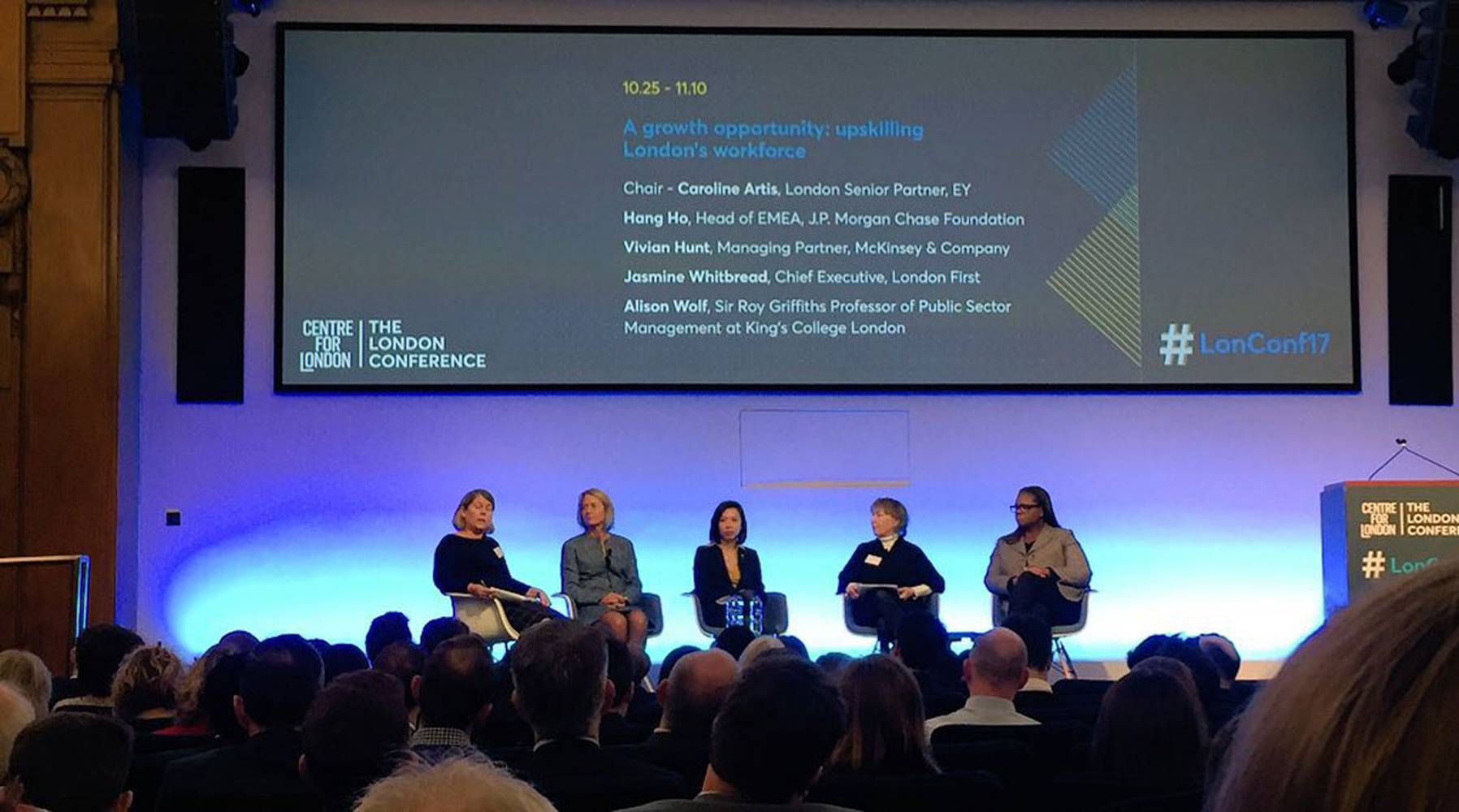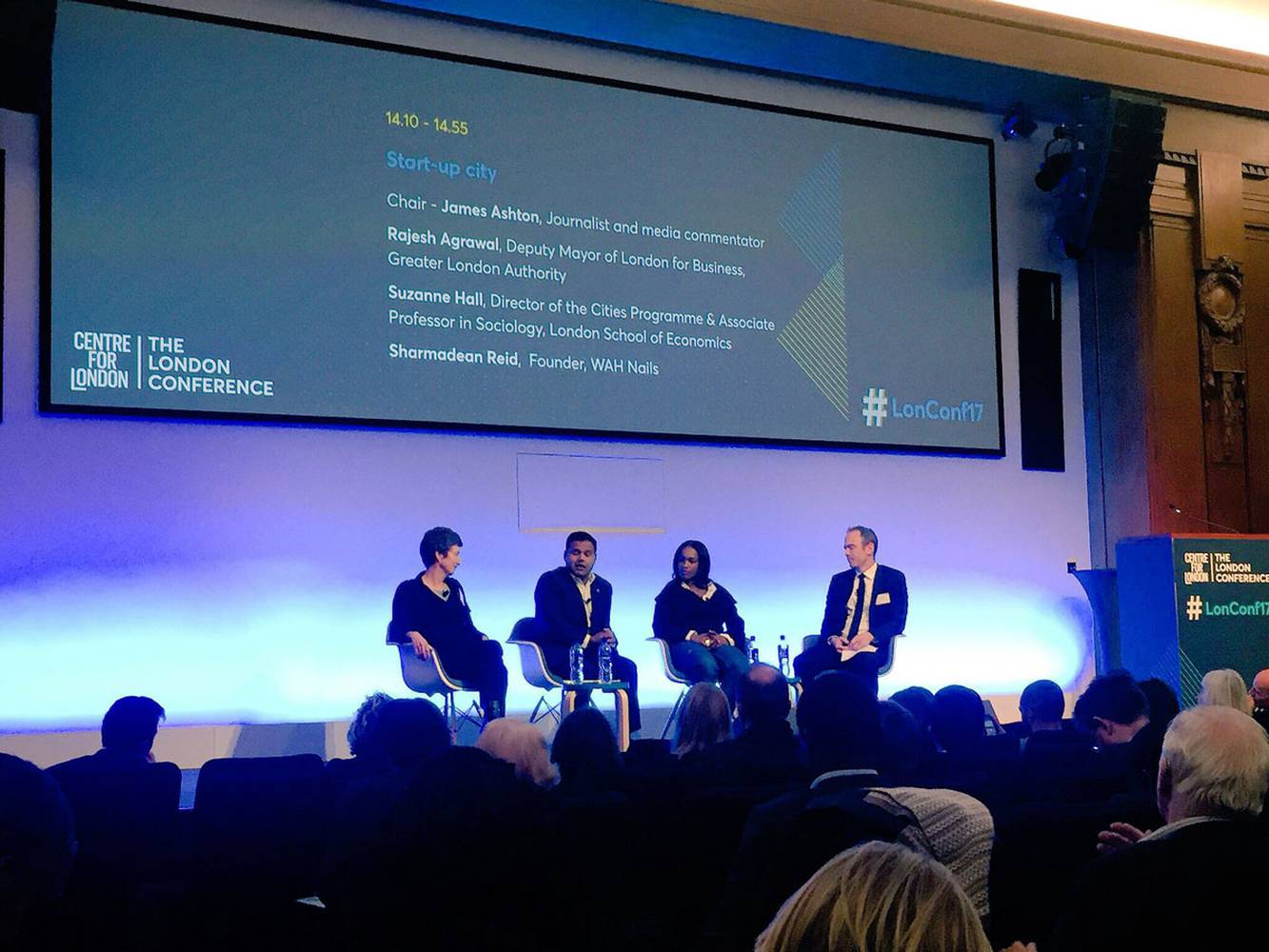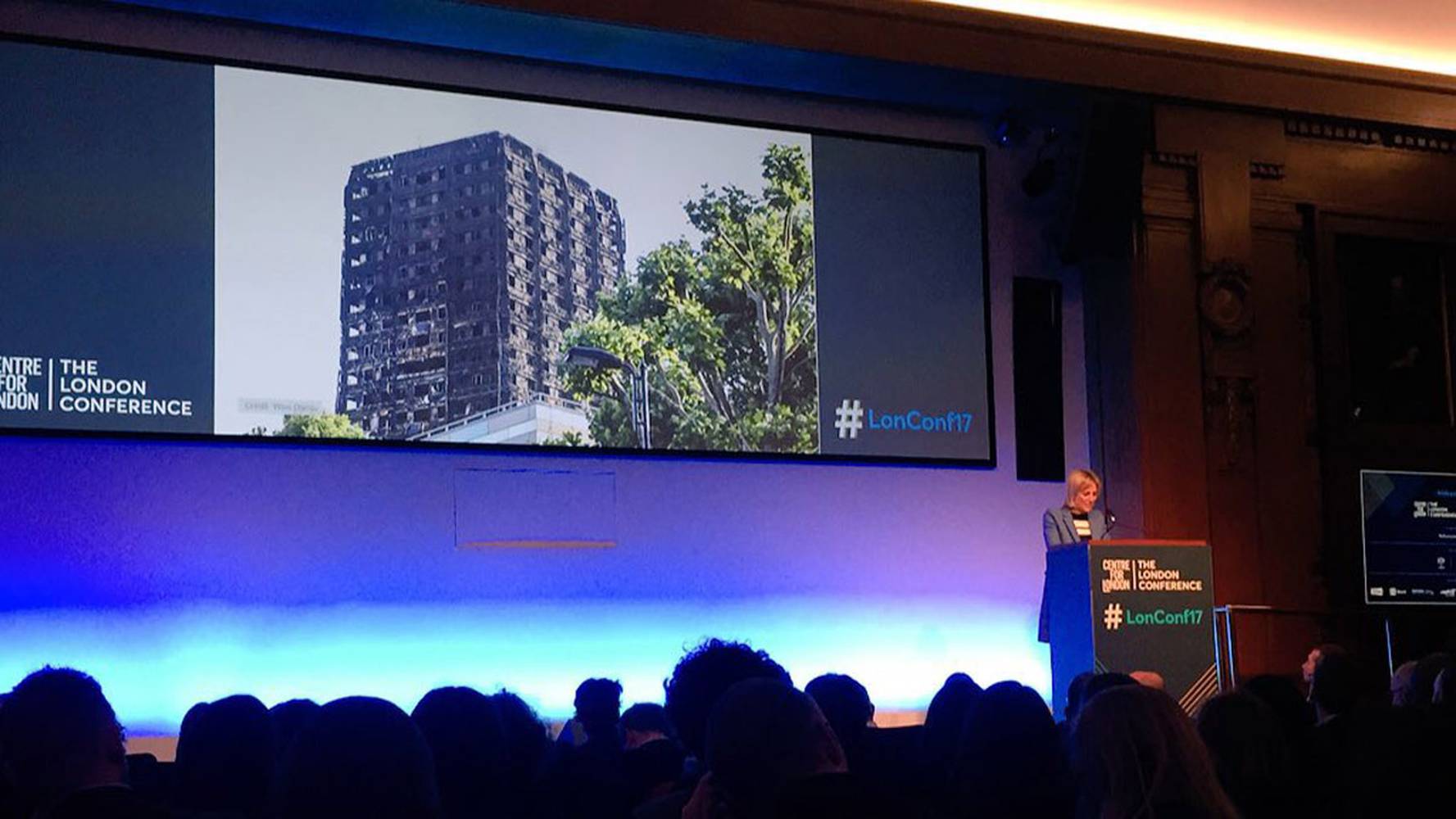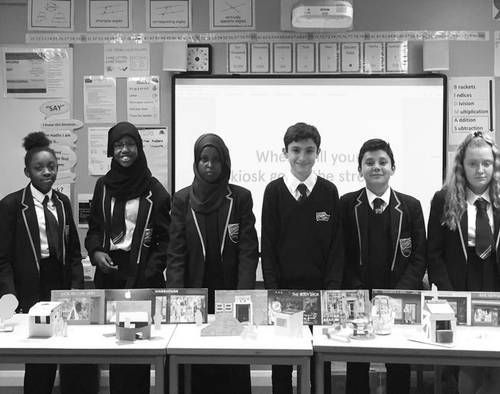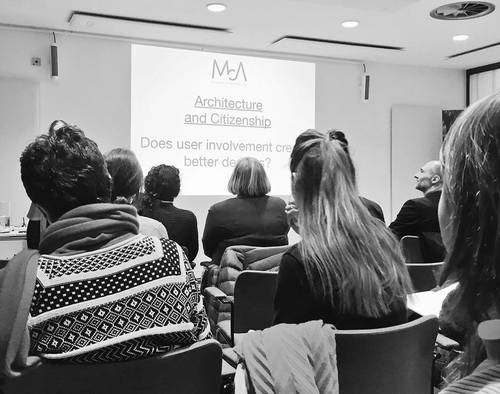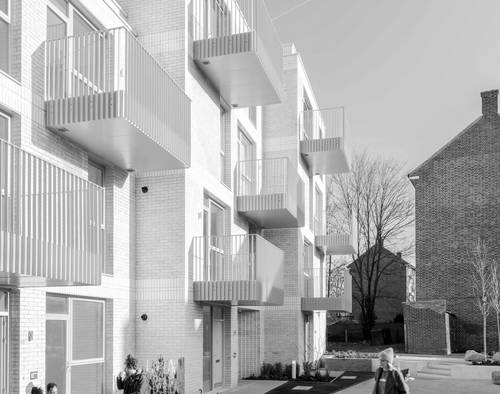The London Conference 2017
November 2017
By Ione Braddick
In November, Archio attended The London Conference 2017, hosted by Centre for London. The 'Fair City' conference, invited senior business, third sector and local government leaders to discuss and debate the topic of inequality, mobility and inclusive growth in London.
Archio directors, Kyle Buchanan and Mellis Haward, were invited to attend in particular for their work on Community Land Trust housing in Lewisham, proposing a new housing model which provides an alternative to homes as an investment. Ione Braddick was invited as a #LeadLDN nominee, for her research work showcasing diversity of roles in her project The Alternative Architect. We were delighted to be at the conference; as a practice, Archio believe that architects should be fully engaged with wider social, economic and political issues, in order to have a meaningful impact in helping to improve people's quality of life through the built environment.
The opening panel discussion 'New ways of thinking about inclusive growth' saw Stephanie Flanders (Bloomberg) promote the need for considering the quality not just the quantity of socio-economic growth, and call for better ways of measuring this. Meanwhile Danny Kruger (Legatum Institute) argued that growth needed to be place-based, with power handed back to communities, but that crucially this didn't need to mean the evacuation of the state in creating growth.
Vivian Hunt (McKinsey & Co), delivered the next talk on 'Gender Parity - what could London gain?' with clarity and conviction, showcasing McKinsey's report noting that gender and ethnically diverse leadership results in higher business performance, and absence of diversity leads to weaker performance (pleasing the statisticians in the audience). Vivian also noted that more women needed to choose better paid jobs in better paid sectors, relevant to girls choosing and staying in STEM subjects, including design and engineering.
Archio advocate architecture, design and construction careers to young people, through our RIBA Architecture Ambassadors project with schoolchildren, and Ione's one-on-one mentoring with the Stephen Lawrence Charitable Trust.
An all-female panel followed, speaking on 'Upskilling London's workforce', with much discussion about the recent Apprenticeship Levy and the desperate skills shortage in the construction industry. Architecture has a way to go in establishing apprenticeships and other routes into the profession, but Archio were interested to recently hear that the ARB and RIBA are working towards this, with the Architecture Apprenticeships Trailblazer Group.
A competitive pecha kucha (20 slides, each slide 20 seconds) on 'New ideas for London' saw Rachel Aldred (University of Westminster) argue for freedom passes for Santander Cycles, Roland Karthus (Matter Architecture) present an intergenerational housing model, and Nat Whalley spoke about founding The Organise Platform, to facilitate union action. It was a close competition, but intergenerational housing clinched it, proving how vital the audience considers alternative housing models to be.
An interesting afternoon panel discussion, 'Start Up City', saw Suzanne Hall (LSE Cities) talk about the power of the high street for entrepreneurialism, following research undertaken with architects We Made That, (Peckham high streets provides 13,400 jobs, whilst Westfield provides 8,800). Sharmadean Reid (WAH Nails founder) told her own start up story and highlighted the need for more and clearer education on entrepreneurship.
The Deputy Mayor of Vienna, Maria Vassilakou, discussed next the benefits and challenges of striving to create an open and fair city. She noted that 'participation' is passé , instead citizens now organise themselves to instigate change. This is something that rings true for Archio's Community Land Trust Project, organised by London CLT and Lewisham Citizens, who are taking action to get more affordable housing built.
The topic of community action was key in Emily Maitlis' talk on the tragedy of Grenfell Tower. In a moving presentation, Emily conveyed the shock, numbness, but, overwhelmingly, the perseverance of the people and communities who volunteered help and relief after Grenfell. The talk was a stark reminder of the need to do better and to strive for a 'Fair City', where people are heard and quality housing and maintenance is universal.
Fittingly, the final panel discussion of the day was 'Are you being heard? Civic engagement in the digital era'. Matthew Bolton (Citizens UK) argued that there was a need for people to express themselves if they were angry, and key was then to find out why. But Stella Creasy (MP for Walthamstow) noted that anger on social media, for example, threatened to take away from meaningful debate, as people weren't interested in showing up if there was likely to be conflict. Both Stella and Matthew Bolton agreed that even in the digital era, there was still a real need for face to face, human contact, to build trust and relationships, key for inclusive growth.
The London Conference 2017 offered insight into wider issues, high quality speakers and a range of debate and content which was both eye-opening and uplifting. A huge thanks to Centre for London for organising, and to all their sponsors.
